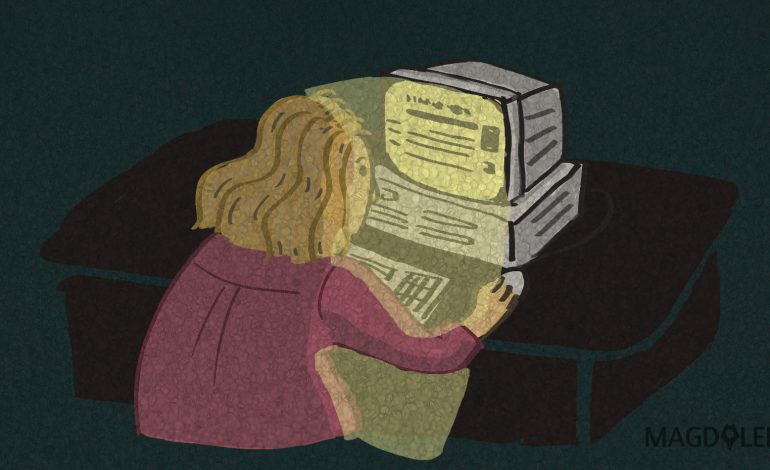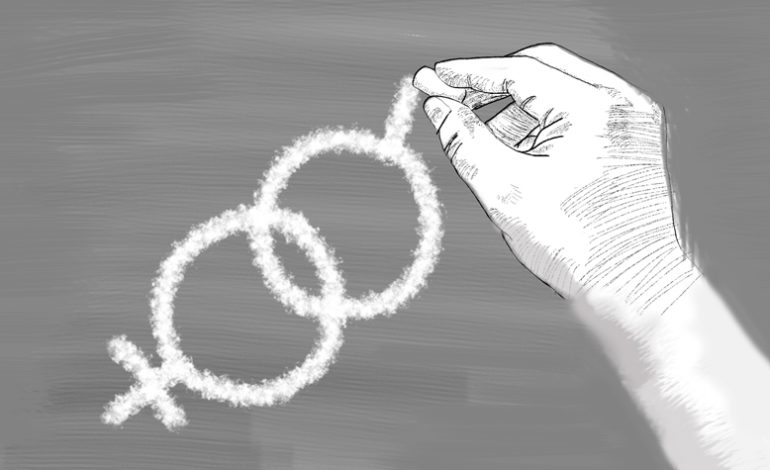Reproductive Health Services Must Target the Youth

“Why is finding a job so hard?”
Since my graduation two months ago this question has been rolling around my head. When I meet my friends, we don’t have anything more interesting to talk about than the excitement – or the horror – of finally entering the working world. We talk about how the recruitment process is going, how A suffers at company B, or how C has decided to change her career path to D.
But one friend is the exception in this conversation. She has not applied for any jobs and has not attended any interviews, not because she’s chosen to go straight for a master’s degree after graduation, but because she has to take care of her kids.
My friend got married when she was 18, right after she found out that she was pregnant with her boyfriend. Don’t worry, she and her family are doing great right now, but what I would like to talk about is how five years ago she had no options – and nobody, including me, knew that she should have.
Five years ago, when we were 18, it didn’t occur to us that there were these things called sexual and reproductive health and rights (what is now known by the abbreviation SRHR), which, had my friend been able to access, would have given her more choices in life. My friend and all of us who were still teenagers back then should have had access to SRHR services, which include comprehensive sex education and counseling. These rights should be recognized and the services should be provided by the government indiscriminately – but they weren’t there for us back then, and they are hardly available now.

Don’t Ask, Don’t Tell
How do young people like me access information about sexual and reproductive health? Out of curiosity, I asked around. The answer is, of course, the Internet – because it’s silly to ask someone something you can Google, right?
“My mom… a.k.a. Mrs. Google,” one friend said, before laughing at the improbable thought of asking older people, especially her mom, about reproductive health information. Another friend, a male, said he got his information from Reddit.
We’re afraid to ask, and even if we do, they won’t tell us. From 15 people that made up my small group of respondents, only one person admitted to having gone to a clinic. This friend, who’s not married yet, went to a gynecologist in a clinic to ask about a problem she was having, only to be labeled promiscuous and have people assume that she had had sexual intercourse before marriage. She went on searching for other clinics, and finally found an ideal one, which she described as being “non-judgmental“.
“Being judged” is how young people describe the reason they neither go for consultations at public health services, or talk to their parents about sexual and reproductive health. A lot of my friends also thought that since they were not going to be sexually active until they got married, they wouldn’t need the information now. Maybe in a few years time.
This is the root of many reproductive health problems in Indonesia: the misconception that one has to be sexually active to require access to sexual and reproductive health services. Because of this misconception, and, since religion and culture here do not recognize sexual activity before marriage, SRHR services are largely only catered to married couples. And that is not right.
The question is, if such barriers still exist even in urban life, what do young people in Indonesia’s poor rural areas and marginalized communities have to deal with when they need access to sexual and reproductive health services (sometimes without access to the Internet)? People in marginalized communities face even greater barriers in gender stereotyping and certain cultural beliefs. They are subjected to a greater risk of child marriage, unwanted pregnancy and sexually transmitted infections.
Sex education and preventive health services, when provided to youth, only reach those who are in school, when, according to the Ministry of National Development Planning (Bappenas), only 43 percent of children aged 16 to 18 in the poorest quintile are in school. This is why 60 percent of reproductive health problems come from adolescents who are not in school, according to Indonesia Planned Parenthood Association (IPPA).
It is funny that our country’s health services are missing their main target, while young people are the ones who should be kept productive at work. If you’re an Indonesian youth aged 16 to 25 like me, you are part of what the World Bank calls the “demographic bonus”. We are currently 65 million in number – the largest generation of young people our country has ever seen – and we’re vital for Indonesia’s economic growth for the next 15 years.
Furthermore, the rate of Indonesian mothers dying in childbirth has increased from 228 deaths per 100,000 births in 2007, to 359 in 2012, with a large number of these unfortunate mothers being young women, teenagers in fact. According to the National Population and Family Planning Agency (BKKBN), abortions increased by 15 percent last year, to 2.4 million, with about 800,000 of those women being teenagers.
To fully remove existing barriers in reproductive health services for adolescents, a holistic approach is needed. This must start with the government repealing all laws and regulations at both central and regional levels that restrict access to sexual and reproductive health services for the youth, as well as the education of health workers at the frontline, such as midwives.
Religious and cultural barriers may limit someone’s sexual activity, but they should not be limiting someone’s access to sexual and reproductive health or the upholding of their rights. Every youth in Indonesia – married or not – deserves a friendly health service, where they can comfortably access information and consultation about their sexual and reproductive health, without being judged.
Haryani Dannisa is a 20-something who loves to read and write in order to keep the faculty of wonder in her soul ever alert. She’s a recent Journalism graduate from Universitas Indonesia.






















